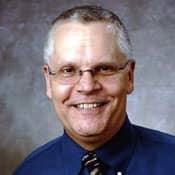"Bless me, Father, for I have sinned."
I spoke the words clearly, firmly, just as I had been taught by Sister St. Margaret. This wasn't my first confession, but it was close to it. And on this particular Saturday afternoon, my mother had decided to take me to confession for reasons I can't remember; but since I was a 7-year-old with a cranky temper and a disobedient streak, I'm sure they were valid.
Now here I was alone in the dark, whispering my sins. I was kneeling on a piece of cracked vinyl padding, speaking into a frayed scrap of velvet cloth that covered a metal grate. Behind that cloth sat a stranger, a priest with his ear bent and his shadowy head nodding. I smelled mothballs and after-shave and something like cigarettes. Or was it incense?
I told him my sins, and he gave me my penance. And in just a few moments, it was over. I prayed the act of contrition—"O my God, I am heartily sorry for having offended thee . . ."—then crossed myself, pulled aside the heavy curtain, and went to the altar rail, knelt and prayed. I had done it. The secrets in my heart had been shared with another and God, in his mercy, had forgiven me. I was a new man! (Okay, a new 7-year-old.) The slate was clean. I could begin again.
After finishing the prayers I had been given, I returned to my mother's pew and we went out into the parking lot. As she started the station wagon and backed out of her space, she had a word of advice. "Gregory," she said, "you've got to learn to keep your voice down. I could hear you all over the church."
My ears turned crimson. And early on, before I had barely gotten my feet wet in the sacrament of confession, I wanted to shake them dry and have nothing to do with it again. Ever.
My early experience with confession may be one reason why for many years I avoided it, as a man with a cavity avoids the dentist. I was afraid it would hurt. Even when "confession" underwent a makeover and became "reconciliation," and the small dark boxes were replaced with wide-open rooms, I was reluctant. I would go once or twice a year—a perfunctory, had-to-do-it practice. My heart wasn't in it. My head, certainly, was elsewhere.
In the interim, when I did go, there may have been flashes of forgiveness, moments of grace. If so, they were accidental. I didn't do much to help matters. Neither, for that matter, did some priests.
I remember once, in college, going to confession to talk over a family problem. It was a Saturday afternoon, just before the 5 p.m. Mass. The priest, fully vested for Mass, was standing outside the confessional, hands clasped behind his back. He looked like a barber waiting for his next customer. People were arriving for Mass, taking their pews. Nobody else was there for confession, so I approached the priest.
"You open for business?" I asked. He said sure, and ushered me into the confessional—actually more like a small office, complete with a desk and two chairs. I sat down, took a deep breath and told him my troubles and why I felt I needed forgiveness. He nodded sympathetically and said he thought he might be able to help. Then he opened a desk drawer and pulled out a pamphlet, offered it to me, and smiled. It was a brochure about communication.
I wasn't sure what to say, but thanked him. He patted my shoulder and said he would pray for me. With that, he stood up to point me back into the church. He had to begin Mass. I didn't pray the act of contrition. I don't think he gave me absolution. He told me to have a nice day.
I didn't. Somehow, I left the confessional feeling worse than when I went in.
I remained skeptical of the sacrament for years after that. I drifted away from regular Mass attendance, and went for years without darkening the door of a reconciliation room or slipping behind the velvet curtain of a confessional. What was the point? In my mind, I was right with God: He knew where I was coming from (and, no doubt, where I was going) and I apologized to him, privately, when it seemed like the right thing to do. End of discussion.
But no.
Years later, the twisting road of my life led me back to the church and the sacraments, and it plunged me more deeply into my faith than I had ever imagined possible. There were many reasons for my return: the deaths of my parents, the prayers of my wife, and a growing sense that there had to be more to life than just getting up and going to work and planning where to go out for dinner or when to take the next cruise. I became a daily communicant. I served in my parish as an usher and, later, as an extraordinary minister of Communion.
And as part of my journey, when the time became right and my heart became ready, I found myself on yet another Saturday in yet another church, preparing to catalogue my sins yet again.
I was going to give confession another chance.
I had wandered into the basement chapel of St. Francis of Assisi in Manhattan, a place whose lifeblood is the endless stream of commuters from Penn Station and the Long Island Railroad, who find their way there for confession at all hours of the day. There is always a line. As I soon discovered, it is easy to understand why.





